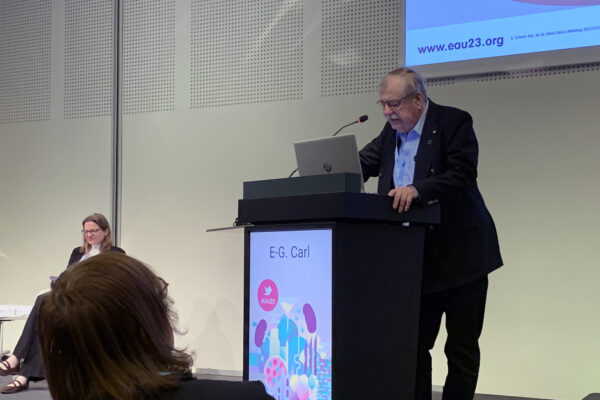Europa Uomo Chairman proposes new measures to ensure treatment options are weighed
Patients who are well-informed about their treatment options and involved in shared decision-making are more likely to keep to treatment and have better quality of life and clinical outcomes.
This was the message from Europa Uomo Chairman Guenther Carl, speaking on the first day of the European Association of Urology (EAU) Congress, designated “Patient’s Day”. He identified common barriers to shared decision-making for patients, including feeling overwhelmed by a diagnosis, a lack of confidence and lack of time to reflect on the information provided.
Alongside these were barriers for clinicians, including lack of confidence in the patient’s ability to make a decision, personal preferences for treatments and limited time to discuss options with patients.
Guenther Carl said that good shared decision-making relies on the collaboration of multidisciplinary teams, patients/caregivers and family support networks. Europa Uomo’s new EUPROMS 2.0 study findings show that only around half of men with prostate cancer feel they had opportunity to thoroughly weigh treatment options with their doctor.
“We propose evidence-based solutions to reduce barriers to and encourage shared decision making,” he said. These include:
- appropriately paced discussion of treatment options
- receptiveness to patients’ preferences
- use of validated decision aids and accurate and credible plain-language resources.
During the conference, Europa Uomo is launching a new patient booklet, presenting the findings of both EUPROMS studies, to be used to help weigh the pros and cons of different treatments.
Guenther Carl's speech complemented a poster presentation on the importance of shared decision making, compiled by Guenther Carl with patient advocate Jan Manarite and Martin Bogemann from Munster University Medical Center in Germany.
Also presenting at the EAU Patients’ Day is Europa Uomo Vice Chairman Erik Briers, providing an overview of male sexual dysfunction as a result of treatment for prostate and other cancers, and what can be done about it.
